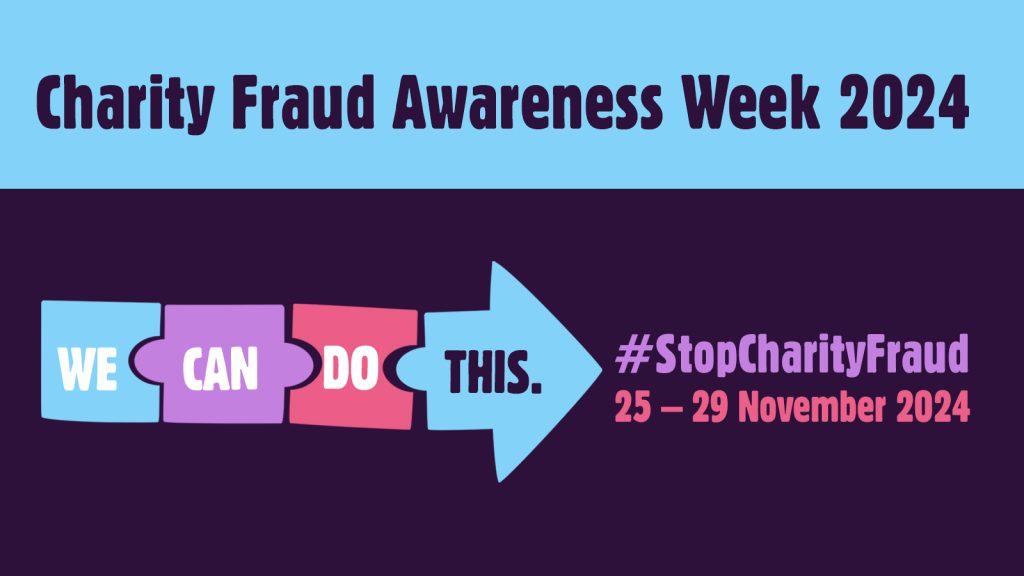Wise Giving Wednesday: Protect Your Donations During Charity Fraud Awareness Week

International Charity Fraud Awareness Week is a timely reminder to protect your generosity by staying informed about common scams and learning how to give with confidence.
How to Stay Safe from Charity Fraud
As many donors will participate on GivingTuesday by supporting various charities, we also hope they will be careful with this generosity so they can contribute with confidence. By coincidence, November 25-29 is International Charity Fraud Awareness Week which represents an international coalition of government regulators, law enforcement agencies, charities and others seeking to address “charity fraud and cybercrime by raising awareness and sharing good practices.” BBB Wise Giving Alliance is pleased to share some steps that donors can take to help reduce instances of fraud.
Beware of Cybersecurity Fraud When Donating To Charities
- Cautions about clicks. Don’t click the link or scan a QR code. First, verify the source. Links and QR codes that appear in social media that claim to direct you to a charity’s website may connect you to a false page to steal your data. Best to visit the charity’s website on your own.
- Watch out for charity name confusion. The online charity appeal may have a name that sounds familiar but on closer inspection it is not the group you have in mind. Sometimes this is because charities are raising funds for the same cause, other times a questionable group is seeking to confuse you, or a scammer may be attempting to access your personable data.
- False identity fraud. Impersonating a charity staff member can also happen. More sophisticated online scams may involve an email or social media communication that appears to be from a charity executive requesting that donations be sent to a new bank account or some other means to divert your gift to the scammer’s pockets. Unusual or suspicious requests should always be checked out. Visit the charity’s website and make direct contact with the charity to verify that the request is authorized.
Steps for Donor Protection Against Charity Fraud
- Check out the charity’s website on your own. To avoid misdirection to a quick gift link, visit the charity’s actual website. See if the charity provides access to basic information such as a description of program accomplishments, financial information, and a roster of their governing board.
- Confirm government registration. About 40 of the 50 states in the U.S. require charities to register with the attorney general’s office or secretary of state. You can verify an organization’s charitable tax-exempt status at this IRS link. In Canada, check with the Canada Revenue Agency. Keep in mind that registration does not mean the government agency recommends or approves the charity.
- Verify charity trustworthiness. Visit charity reports on Give.org to verify if the organization meets the 20 BBB Standards for Charity Accountability (i.e., a BBB Accredited Charity.) There is no charge to charities for accreditation.
How to Report Charity Fraud
- If you want to alert a law enforcement agency about the problem, contact the attorney general’s office in your state (in Canada, the Canada Revenue Agency). For allegations of charity fraud, you can also inform the Federal Trade Commission. These agencies use such reports to help identify and investigate questionable efforts.
Heart of Giving Podcast: Suzanne McCormick on The Y-USA’s Role in Modern America
This week’s Heart of Giving Podcast features Suzanne McCormick, President & CEO, Y-USA (a BBB Accredited Charity) which serves as the national resources office for the nation’s 2,700 local YMCA’s The local facilities engage 13 million members nationwide.
Explore Three of Our Latest Reports
We are always working with charities to publish or update reports for donors.
Visit Give.org or local BBBs to check out any charity before giving. Our
recently evaluated charities include:
- Unitarian Universalist Service Committee
- Women’s World Banking
- National Environmental Education and Training Foundation
You can access an A-Z list of all our live reports here. Finally, remember to let us know by going to
give.org/charity-inquiry if you
are interested in seeing a report on a charity not on the list and we will do
our best to produce one.


